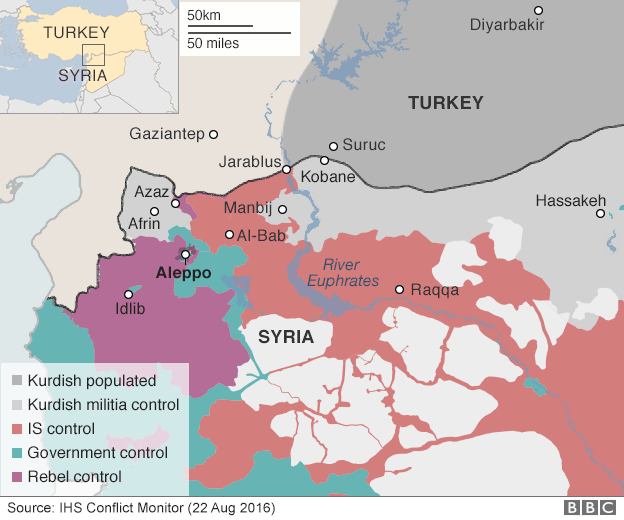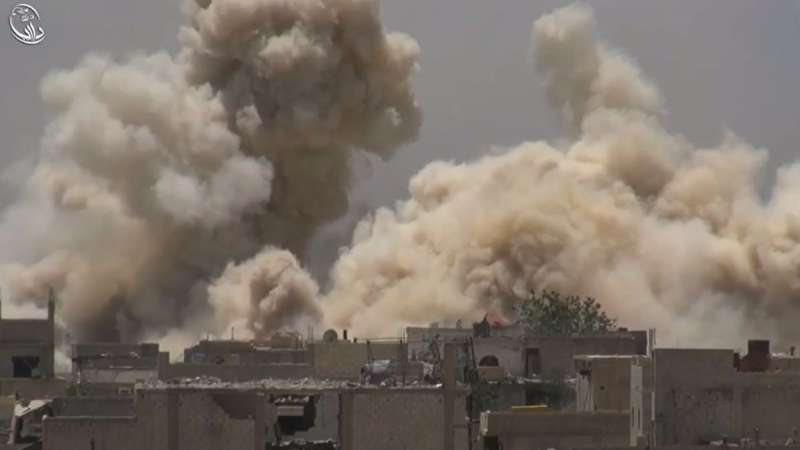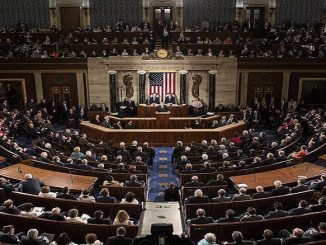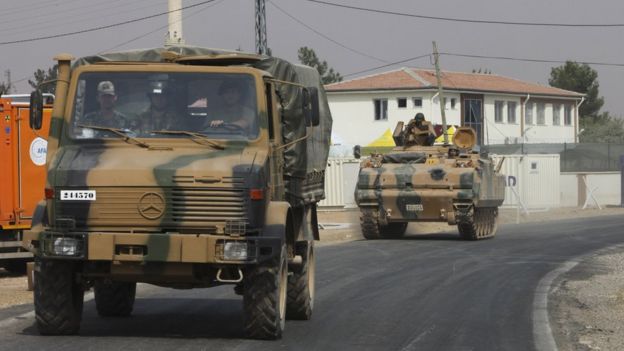
Turkey sent more tanks into northern Syria on Thursday and demanded Kurdish militias to retreat within a week as it seeks to secure the border region and drive back the Islamic State in its first major intervention into Syria.
Free Syrian Army (FSA) fighters, along with Turkish special forces and tanks, and supported by Turkish and US air power, took over the ISIS-controlled town of Jarablus on Wednesday, pushing the group back to its last stronghold in northeastern Syria – al-Bab.
Syrian rebel and Turkish forces pressed on past Jarablus on Thursday in attempt to clear the border area of any ISIS presence.
“The Free Syrian Army now is in total control of Jarablus and the area surrounding it, and they say that they are now going to try to move forward to recapture the territory that is now under ISIS control … particularly in al-Bab,” said Al Jazeera’s Hashem Ahelbarra, reporting from Karkamis, just across the border from Jarablus.
A senior Turkish official said there were now more than 20 Turkish tanks inside Syria and that additional tanks and construction machinery would be sent in as required. A Reuters news agency witness saw at least nine tanks enter on Thursday, and 10 more were waiting outside a military outpost on the Turkish side.
“We need construction machinery to open up roads … and we may need more in the days ahead. We also have armoured personnel carriers that could be used on the Syrian side. We may put them into service as needed,” the official said.
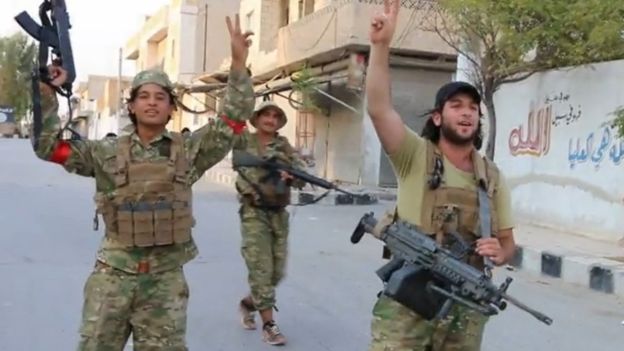
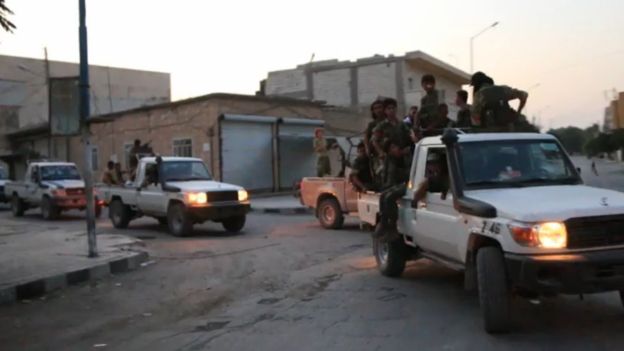
Stopping the Kurdish militias
Turkish President Tayyip Erdogan said on Wednesday that ISIS had been driven out of Jarablus and that it was now controlled by Turkish-backed Syrian rebels.
But Erdogan and senior government officials have made it clear that the aim of “Operation Euphrates Shield” is as much about stopping the Kurdish YPG from seizing more territory along the border and filling the void left by ISIS as it is about eliminating the hardline group itself.
Turkey demanded that the YPG retreat to the east side of the Euphrates within a week. The Kurdish militia had moved west of the river earlier this month as part of a US-backed operation, now completed, to capture the city of Manbij from ISIS.
Turkish Defence Minister Fikri Isik said preventing the Kurdish PYD party – the political arm of the YPG – from uniting Kurdish cantons east of Jarablus with those further west was a priority.
“Islamic State should be completely cleansed, this is an absolute must. But it’s not enough for us … The PYD and the YPG militia should not replace Islamic State there,” Isik told Turkish broadcaster NTV.
“The PYD’s biggest dream is to unify the western and eastern cantons. We cannot let this happen,” he said.
Read more: Turkey-backed Syrian rebels retrieve Jarablus
The Euphrates River, liberating Raqqa
US Secretary of State John Kerry told Turkish Foreign Minister Mevlut Cavusoglu by phone on Thursday that YPG fighters were retreating to the east side of the Euphrates, as Turkey has demanded, foreign ministry sources in Ankara said.
A spokesman for the US-led coalition against ISIS also said that the SDF had withdrawn across the Euphrates, but had done so “to prepare for the eventual liberation” of Raqqa, ISIS’s stronghold in northern Syria.
Speaking during a visit on Wednesday to Turkey, US Vice President Joe Biden also tried to soothe Turkish concerns about Kurdish territorial gains in Syria.
He said there should be no separate Kurdish entity in northern Syria and the country should remain united.
Kurdish militia fighters would not receive US support if they failed to pull back east of the Euphrates as promised, he said.
Ankara views the YPG as a threat because of its close links to the Kurdistan Worker’s Party (PKK), which has waged a 30-year insurgency on its own soil.
It has been alarmed by the YPG’s gains in northern Syria since the start of the Syrian civil war in 2011, fearing it could extend Kurdish control along Turkish borders and fuel the ambitions of its own Kurdish insurgents.

